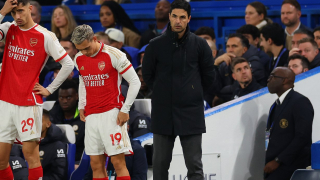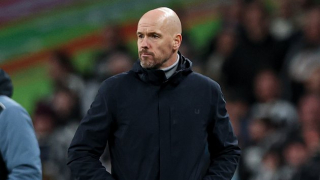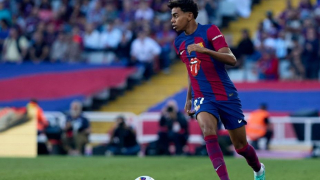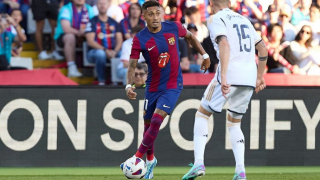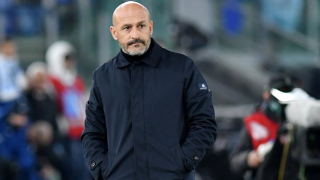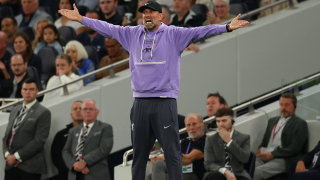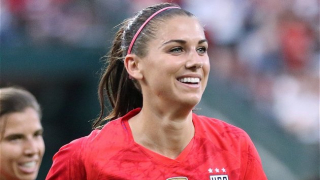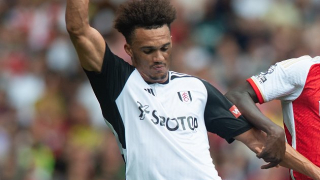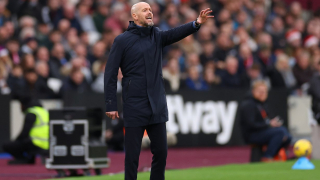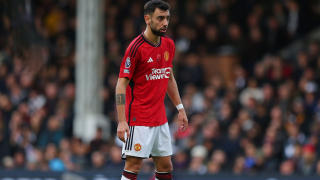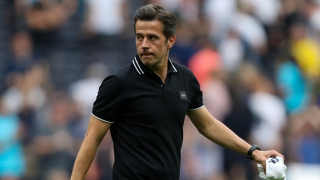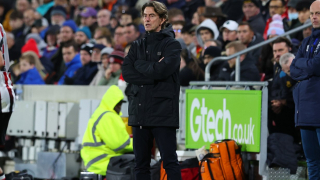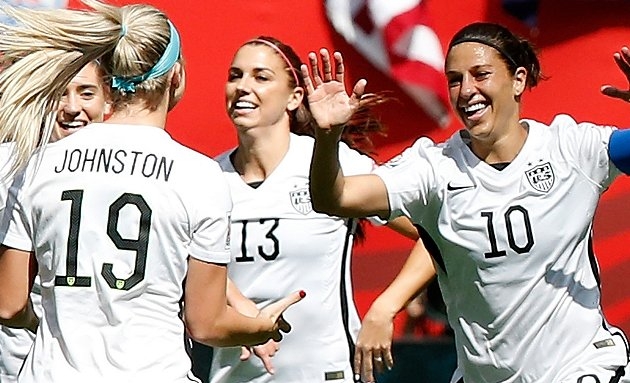This week we look at the Australian Women's National Team's labor dispute with their federation, which shelved their two game tour against the United States. The Haitian Women's National Team stepped in and we look at their unique struggle to make inroads on the international game. Finally, we set the stage for the NWSL Final on October 1 with the results from last weekend's semifinals.
AUSTRALIA'S PAY ROW EXPLAINED
A labor dispute at home forced the Australian Women's National Team to cancel a two-game tour of the United States, with matches against the World Champions scheduled in Detroit, Michigan and Birmingham, Alabama on September 17 and 20.
The dispute was over compensation amounts to the Matildas' full-time players by Football Federation Australia (FFA). The Matildas were represented by the Professional Players Association (PFA), who were also in dispute with the FFA regarding the men's professional A-League - also under the FFA's charge - which has seen collective bargaining agreement talks stall after 6 months. The PFA proposed an annual salary compensation of AU$40,000 (US$29,000) for 14 Tier One women national team players, with 6 Tier Two players earning AU$33,000 (US$24,000). The FFA felt that these salaries were unaffordable and countered with an offer for a 10% increase a year for four years, which would result in an increase from AU$21,000 (US$15,000) to AU$23,000 (US$16,500) per player.
An important element that the players and the PFA are positioning for is minimum standards for high performance. The previous CBA was developed assuming that the women were semi-professionals, which was the case at the time. However, for the 2015 Women's World Cup in Canada, the Matildas had a six-month preparation program with no contract terms adjustment, so they were not compensated for having to give up employment, family time and other opportunities. The PFA felt that, given their time commitment this year with training for and playing in the World Cup, that their salaries were actually below the national minimum wage.
PFA head Adam Vivian said that the women, "have a full-time workload with part-time pay." The international players, argued the PFA, cannot take regular jobs because of the training and travel demands for international competitions. Comparisons were drawn with the U.S. National Team players, who have a reported annual base salary of US$70,000 each, but bonuses and sponsorships can take that to US$200,000 in some cases. England, the bronze medalists in Canada, average about £21,000 (US$33,000) per player this year, which is substantially above payments they received in 2007, after a World Cup campaign in China.
A complicating element for the Matildas' is that their negotiations are bundled with the discussions for an A-League (men's professional league), which again the FFA finds untenable. FFA chief executive David Gallop said: "The extraordinary demands that the PFA have made in relation to the A-League salary cap has found the Matildas caught up in something they shouldn't be caught up in….It's sad that the Matildas have been dragged into a dispute that's primarily about the A-League…The offer to the Matildas would basically double their pay over the next four years. The new demands are simply not affordable and the PFA knows it."
The men's team has boycotted some marketing appearances in West Australia before a World Cup qualifier against Bangladesh, which they won on September 3, 5-0 in Perth.
These negotiations have no impact on the semi-professional Westfield W-League (begun in 2008) or amateur state leagues that are played in our winter. The W-League was launched to help develop the national women's teams' program by providing the coaches a more structured environment to scout players, and to give those players a structured training environment that they can improve in. The caliber of W-League play has increased over the years and is a target for off-season players in North America and Europe. Its eighth season will start as scheduled in mid-October and run through January, with the Grand Final on the 31st.
THE US REACTION
So what was the reaction from the Americans - both the players and the Federation - to the announcement that the Matildas' labor dispute was forcing them to cancellation their trip a week before the first match in Detroit? The American players were supportive of the Matildas, having had more than a few difficult negotiations - including strikes - with U.S. Soccer over the years.
All-time women's international scoring leader Abby Wambach said: "Part of what we were able to accomplish this summer was empowering women. What the Australian women are doing is they're empowering themselves and they're empowering the next generation of women coming up behind them to stand up and speak up for what is right and what they think they deserve. We did this many, many years ago and us, as players, are now reaping the rewards of the hard work [by saying]: 'We're not going to accept this kind of treatment anymore.'"
Other World Cup stars around the world have tweeted their support for the Aussies on social media. There was the practical matter that the U.S. Federation had two high-profile games scheduled for which they had sold about 60,000 tickets, amounting to a few million dollars of sales. Cancelling the games would be a severe financial setback to the federation, but also take away the opportunity for American fans in these two important markets to celebrate the team's victory this summer.
HAITI AND AUSTRALIA
U.S. Soccer announced on September 10th that Australia was not coming but the games were not cancelled. Four hours later, Haiti was announced as the replacement team. Interestingly, Haiti regularly trains for half of the year in South Bend, Indiana, about 3 hour's drive from Detroit. Haitian national women's team head coach Shek Borkowski has had a long relationship with Australia, first bringing the national team to Goshen, Indiana in 2005, where his WPSL side FC Indiana defeated the Matildas 1-0.
Borkowski told tribalfootball.com in an exclusive interview on Thursday, September 10th that they had actually planned to be in Detroit the week of the match to play a closed door scrimmage against Australia.
Borkowski was tremendously excited for the opportunity to play the World Champions twice: "We don't expect to win but it will help our team develop."
After finishing 6th out of 8 sides in last fall's Gold Cup for Women's World Cup qualification, including a 6-0 defeat to the U.S., he has focused on developing his U-20 side, which will play in a Caribbean Football Union U-20 World Cup qualifying tournament in a few weeks, when they host an eight team event in which three teams advance to Honduras for the CONCACAF U-20 WWC qualification regional finals. Current qualifiers for the CONCACAF finals are Canada, Mexico, Panama, the U.S. and the host nation, along with the top three CFU teams. The next U-20 Women's World Cup is scheduled to be held in Papua New Guinea in the fall of 2016.
After the first game in Detroit, in which the U.S. defeated Haiti 5-0 - with World Cup star Carli Lloyd scoring a hat trick and forward Crystal Dunn adding a late goal and two assists in front of a crowd of 34,538 - Borkowski said: "We're not too happy losing 5-0 but we have to keep it in perspective. They are World Champions, the reigning Olympic Champions, and arguably the best team in women's football ever. For us, we played two 16-year-olds, one 17-year-old and six 18-year-olds, which is the core of our U-20 team…. For many of them, it was their first time out of Haiti, first time playing in front of this crowd, first time playing World Champions.
"We could be at our best and we're still going to lose. They scored 5 goals against Japan in the Final and beat Costa Rica by 8-0 and 7-2 [last month], so 5-0 is respectable score by our standards….We'll take it and take our beatings and it will be a good experience for us and we'll move on.….To make progress we have to play teams that are better than us."
The Haitians did improve over their last meeting with the U.S., a 6-0 defeat in the Gold Cup last fall.
Borkowski explained that after last fall's Gold Cup, that the team - which he has been in charge of for four years - had to go through a rebuilding cycle for the next WWC qualification campaign in 2018/2019 - which is normal for any national team - but there are societal reasons at home that add a different element to the equation: "For us, every four years, we lose our players who turn 24 or 25 because there is no money for them and there is enormous pressure from their families to start making a living, just as we get them to the point that the team is competitive….Parents say to them: 'Why are you wasting your time [with football]? You need to help raise your sisters, raise your brothers or make money.'
"There is a social pressure on the players and not an acceptance of [women's] football like there is in the United States….Every four years, we start with a new group of young players and try to keep them involved in the game."
Borkowski said that football is a social force for women around the world and he speaks with authority on the subject: he has a former assistant coach who heads the national team of Kazakhstan [Kaloyan Petkov] and Borkowski himself - a native of Poland who played collegiately and professionally in the U.S. - coached women's club ball professionally in Russia. Borkowski said: "The women's game is growing exponentially in terms of media interest, in terms of sponsors interest, tactical development, fitness levels and will make it an attractive proposition [for younger girls in the future]."
Borkowski's faith in his youngsters was shown when he took the U-20 side to Caribbean Zone 2016 Olympic Games qualifying recently in Puerto Rico against senior national selections, in order to give them experience. With only two sides qualifying for the Rio de Janeiro Olympics out of CONCACAF [most likely the U.S. and Canada], he admitted that Haiti had no chance to reach the Olympic Finals, but still the team did well. Haiti defeated Aruba 14-0 and Grenada 13-0, while a narrow 3-2 defeat to Puerto Rico kept them out of the next round of qualifiers.
Haitian Federation President Yves Jean-Bart took a break from monitoring messages from home after the game to talk to tribalfootball.com. He felt that the series against the U.S was: "A huge opportunity for the team, the coaching staff and the federation. They measured themselves against the biggest football team in the world."
Jean-Bart said that the general population was aware of the game at home: "In Haiti, everyone left for home early to watch it. They were proud to watch the young Haitian girls that they know and see every day, play against world stars."
Another benefit for Haiti being asked to play the Americans was the chance to increase their profile in order to recruit Haitian diaspora in North America and Europe to join the side. Borkwoski said that in the entire country, there are only about 250 women's players, so finding quality diaspora is part of his long-term strategy. In Detroit, he gave first international caps to two U.S. high school players with Haitian heritage. Forward Sabine Chandler, a senior at Dublin, Ohio's Jerome High School, played the entire second half at forward and was industrious in a difficult situation in which the U.S. dominated ball position. She called it "a blessing" to receive her first cap at any level.
Borkowski heard about her this summer but had not been able to have her in for training; he ended up bringing her up for the game and feels that she is a nice addition to the squad. Midfielder Darline Radamaker is a junior at Utica Ford High school in suburban Detroit and was born in Haiti but adopted by a Michigan family when she was little and had many friends in the stands. Borkowski said that she got to play against players she had idolized while watching the World Cup.
Borkowski said that high profile matches like the two against the Americans help them to show that women's football deserves more funding at home: "We need investment from our own federation and our government, but there is not much return on the money in Haiti by investing in the women's game. They have to be pragmatic and invest and make money in men's football. It's not a criticism of our federation; it's a statement of fact. The U.S. is where they are today because of 35-40 years of people making investments. We have to follow their example and do it on our own scale at a lower level. We need small successes so they will invest a little more."
Haiti has some players abroad; former University of Southern California/Cal State Northridge and Pali Blues/L.A. Strikers/L.A. Blues in the W-League defender Shauna Hudson is now playing in Japan's Nadeshiko II (Second Division) with 1 FC Kibikokusaidaigaku Charme, while midfielders Samantha Brand (ex-University of San Francisco/Iceland/Bay Area Breeze of WPSL) and Lindsay Zullo--Midfielder (ex-Flagler College) are playing in Sweden's lower divisions. Borkowski can't afford to bring them in other than for a qualifying tournament final because of the expense.
The one remaining question was whether the fans in Detroit - all 34,538, the largest crowd to ever see a football match in Ford Field, the home of the NFL Detroit Lions - cared that Haiti played rather than Australia? A number of fans told tribalfootball.com that they were there to see the Americans. One group of 30-40 year old women players from nearby Toledo, Ohio said at halftime: "It's so cool to see the World Champions."
Another added that it was "her first professional soccer game ever, but she would be back."
So, all in all, all credit to U.S. Soccer for stepping in and implementing Plan B on short notice and putting on a fun and entertaining Victory Tour match for the fans. Haiti deserves credit for their willingness to come on short notice and the positive attitude that everyone associated with the team showed. Credit the fans for making it a special evening in the state of Michigan. The tour resumes Sunday in Birmingham, Alabama.
NWSL FOCUS ON FINAL
In the National Women's Soccer League (NWSL) semifinals held on Sunday, September 13, defending champions FC Kansas City defeated host Chicago Red Stars 3-0, with clinical finishing and a well-organized defense. U.S. international forward Amy Rodriguez scored a brace, national teammate Heather O'Reilly had 2 assists and former national team goalkeeper Nicole Barnhart made 9 saves. Chicago outshot the Blues 18-11 but three goals within the first 25 minutes (the third from former Bayern Munich forward Erika Tymrak) gave FC Kansas City the edge and Chicago couldn't pull any goals back
.
The other semifinal also ended 3-0, with the Seattle Reign advancing to the finals for the second year in a row, defeating Washington Spirit behind goals from Beverly Yanez, Megan Rapinoe and Mariah Bullock, all which came in the last 20 minutes.
FC Kansas City and Seattle Reign will meet in the final in Portland Oregon on October 1.
Next week, the Women's Football Review will examine the U.S. versus Haiti international from Birmingham, update the college scene and look at player movement around the world.
Tim Grainey is a contributor to Tribal Football. His latest book Beyond Bend it Like Beckham is on the global game of women's football. Get your copy today.
Follow Tim on Twitter: @TimGrainey


